If you've ever found yourself tangled in the web of old account debts, you're not aloneâmany people face this daunting task. Navigating the intricacies of settling these debts can seem overwhelming, but it doesn't have to be. With the right approach and a clear plan, you can take significant steps toward financial freedom and peace of mind. Join me as we explore effective letter templates and strategies for settling your old debts, and let's get you on the path to relief!

Polite acknowledgment of debt responsibility
An outstanding debt can significantly impact financial stability and relationships. Acknowledging responsibility for an overdue account is essential for resolving financial obligations. Outstanding amounts may include various fees, interest rates, or service charges that have accumulated over time. Clear documentation, such as invoices or contracts, can outline specific amounts due. The debt settlement process often involves negotiations with creditors, discussing payment plans, or lump-sum settlements. Open communication fosters goodwill and can potentially lead to more favorable terms. Timely acknowledgment of debt responsibilities can enhance credit scores and restore trust.
Clear statement of debt amount and account details
Settling old account debt requires clear communication of outstanding amounts and account information. For instance, an individual may have a total debt of $2,500 on a specific account, such as Account Number 123456, which is overdue since January 2022. Clarity about the original creditor, perhaps XYZ Financial Services, and potential interest accrued, approximately $200, is essential for accuracy. Specify the intended payment plan, such as a one-time payment of $1,500 to settle the debt or monthly installments of $250 until the balance is cleared. Include essential contact information, including an email address or phone number for any questions, ensuring all parties recognize the terms for resolution.
Proposed settlement offer or payment plan
Settling an old account debt effectively involves outlining clear terms and conditions. In a proposed settlement offer, it's important to clearly state the original debt amount, the current balance, and the proposed settlement amount, which may be a percentage of the total due. Additionally, specify the monthly payment plan, detailing the duration and the amount to be paid monthly. Include relevant account details, such as the account number and creditor's name, to ensure accurate identification of the debt. Providing a sense of urgency by stating a deadline for acceptance can also motivate a quicker resolution. A respectful tone, acknowledging any past grievances, can foster goodwill and encourage cooperation in settling the outstanding balance.
Deadline for response or agreement
In the realm of financial settlements, outstanding account debts can create significant stress for individuals and businesses alike. Settling these debts often requires clear communication and defined timeframes. A typical scenario involves a creditor reaching out to a debtor regarding a past due account; this usually occurs after repeated reminders or missed deadlines. Setting a deadline for response is crucial, with a common duration being 30 days from the date of notice, ensuring the debtor has ample time to review the situation, assess their financial capability, and consider potential payment arrangements. This deadline serves as a pivotal point for both parties, encouraging a resolution while avoiding escalation to collections or legal action. Effective resolution may highlight specific amount owed or reference original agreement terms, and any potential interest or fees that may have accrued during the past due period. Clear details regarding the payment methods available, like bank transfers or installments, can facilitate smoother negotiations.
Gratitude and formal closing statement
Addressing overdue account balances can maintain financial credibility. Acknowledging previous communications regarding debt settlements shows respect for the creditor's position. Expressing gratitude for their patience throughout this process fosters goodwill. Intentions to rectify outstanding amounts demonstrate responsibility and resolve. Formal closing statements can reiterate commitment to meet obligations. Clear timelines on payments assure the creditor of timely resolutions. Ending with sincere apologies for any difficulties caused underlines professionalism and enhances relationships.

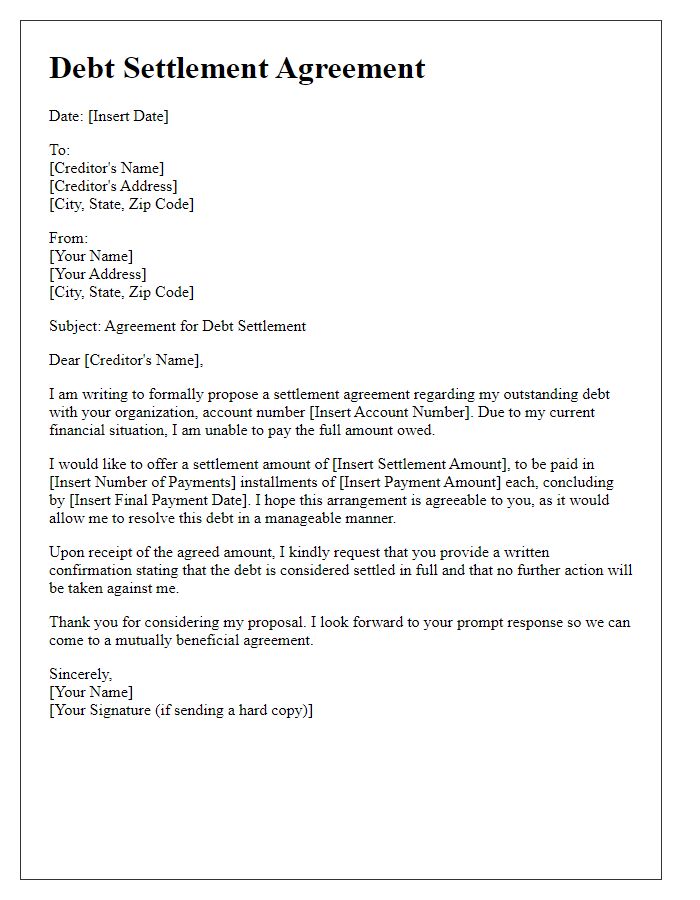
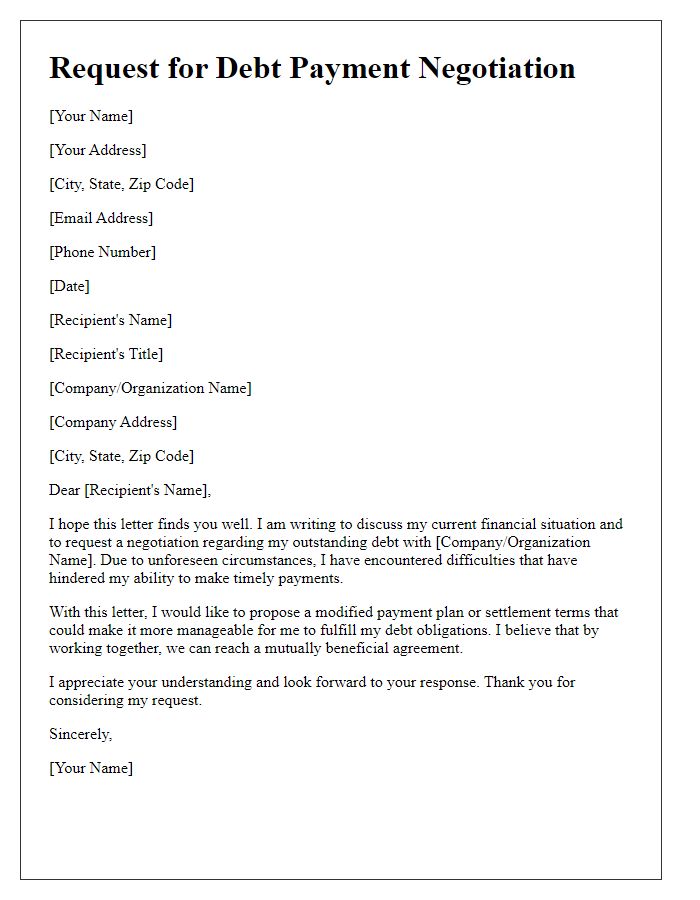
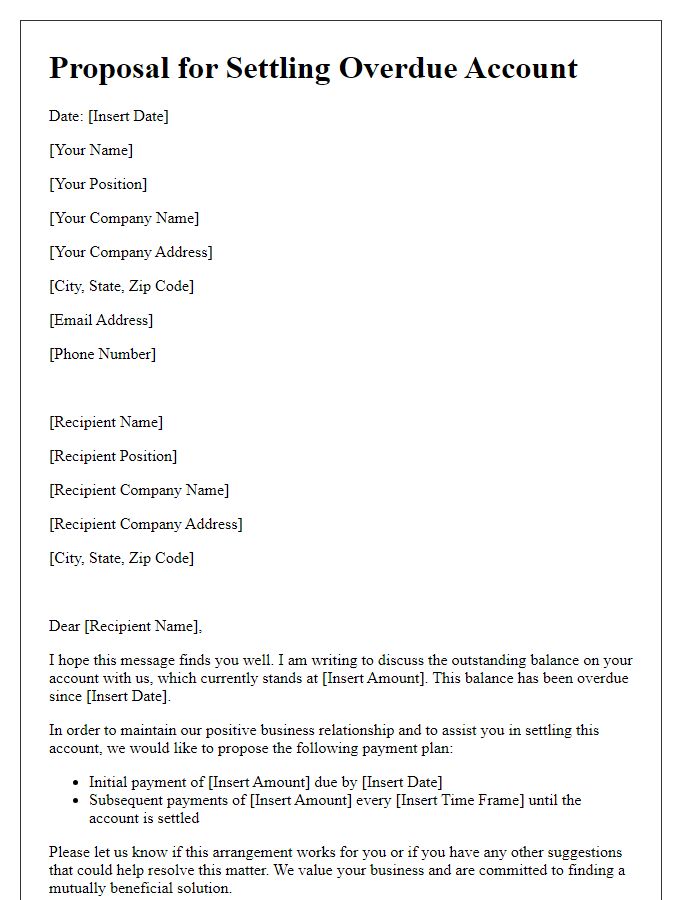
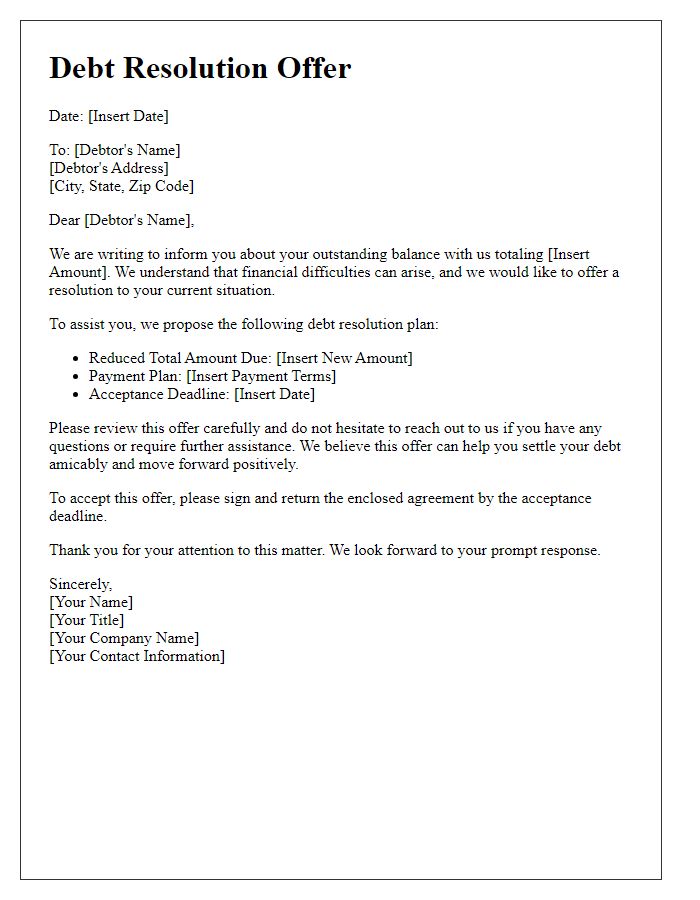
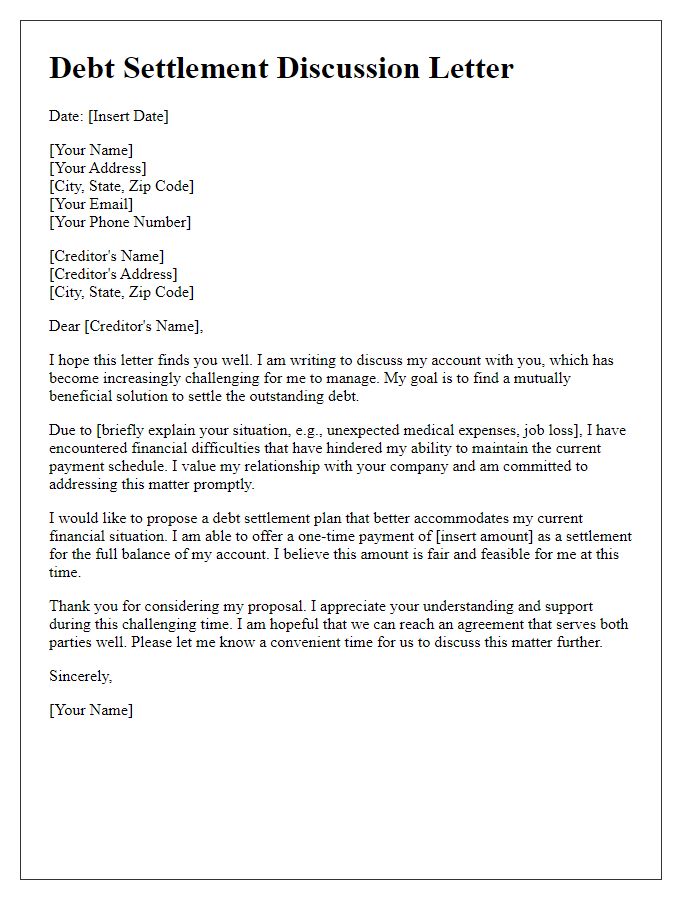
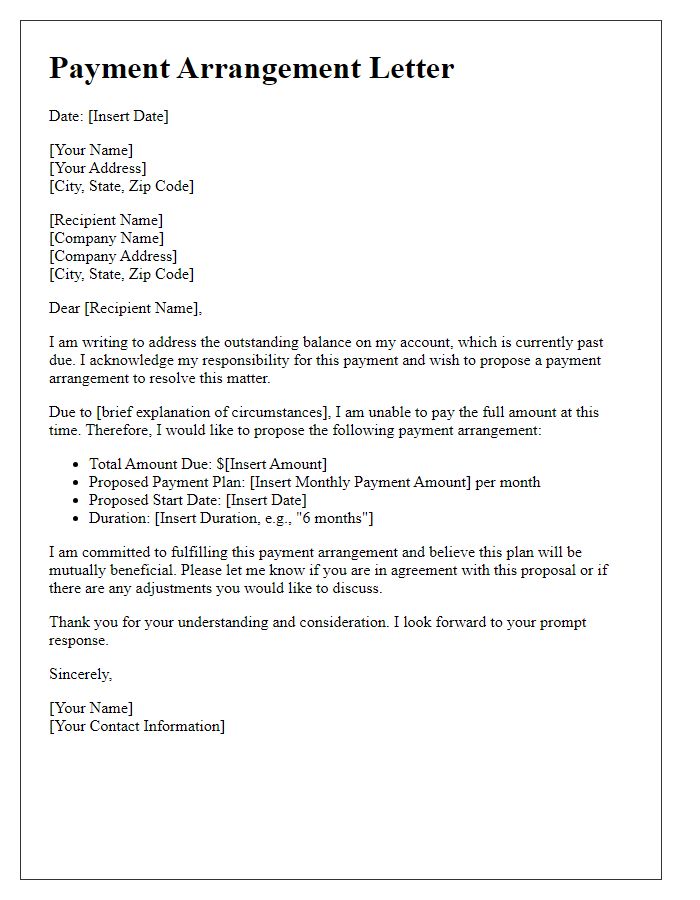
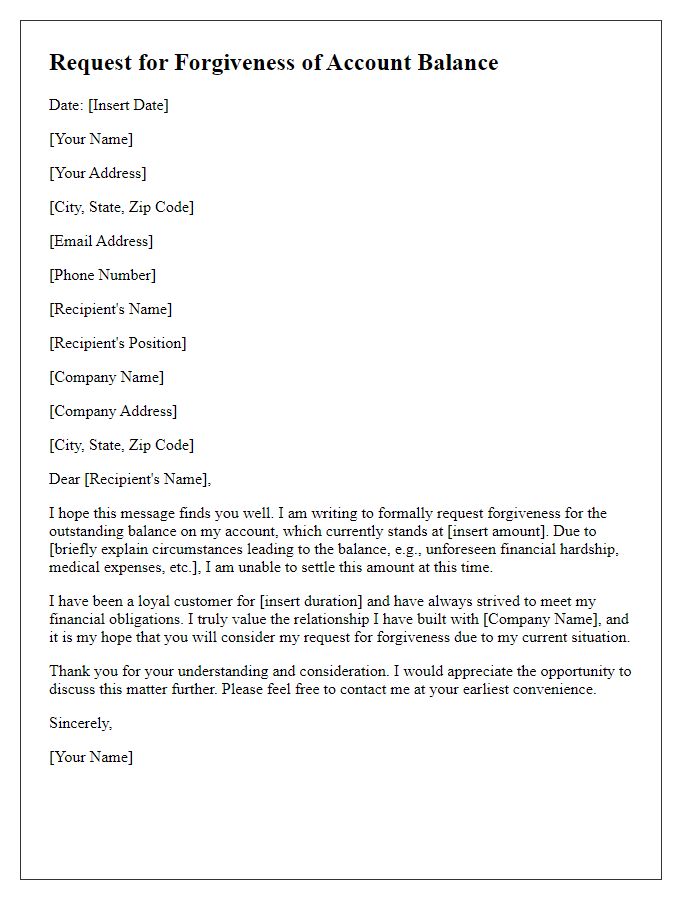
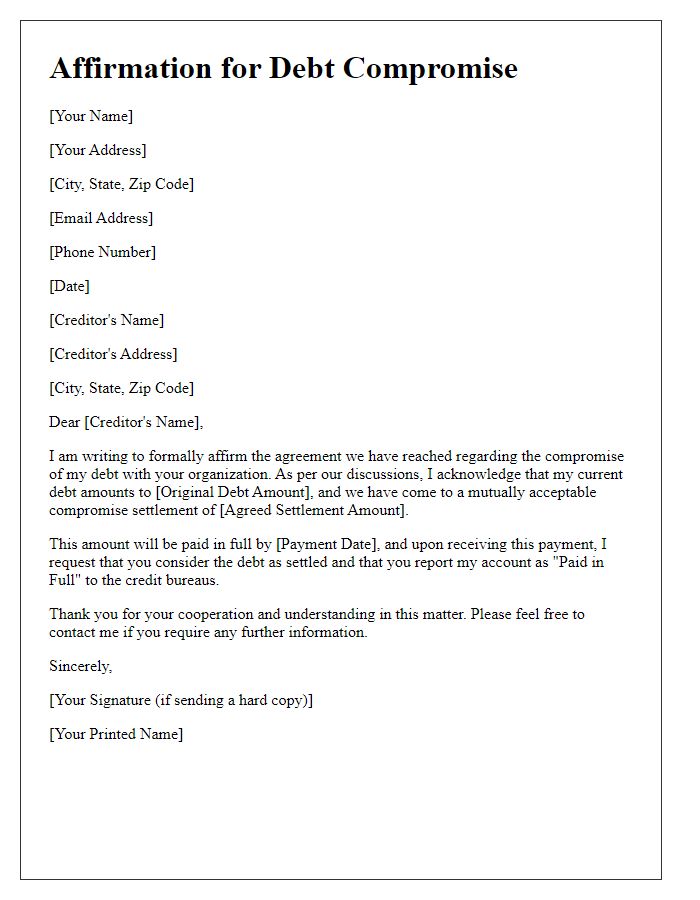
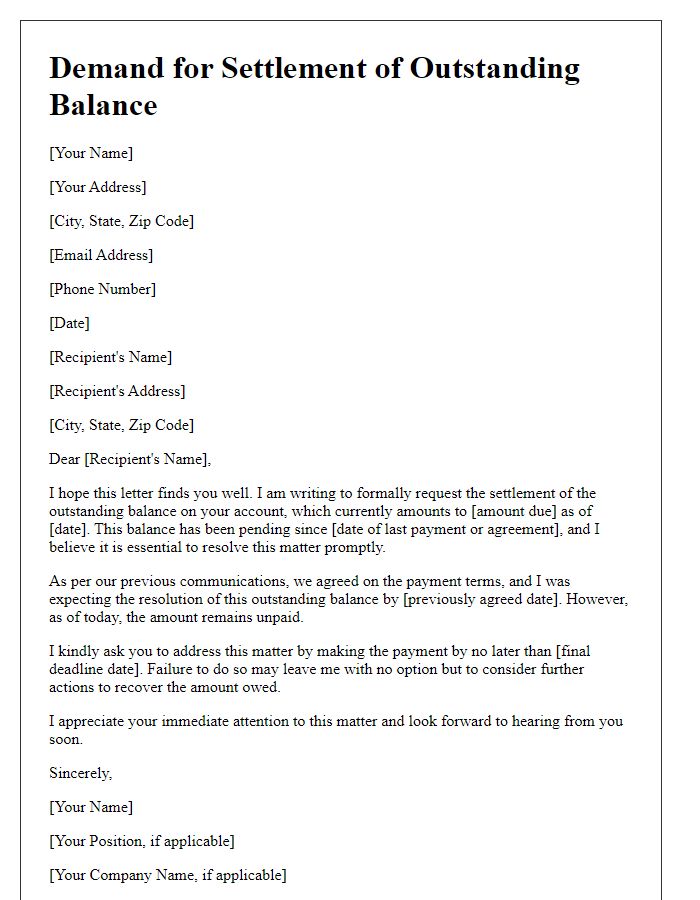
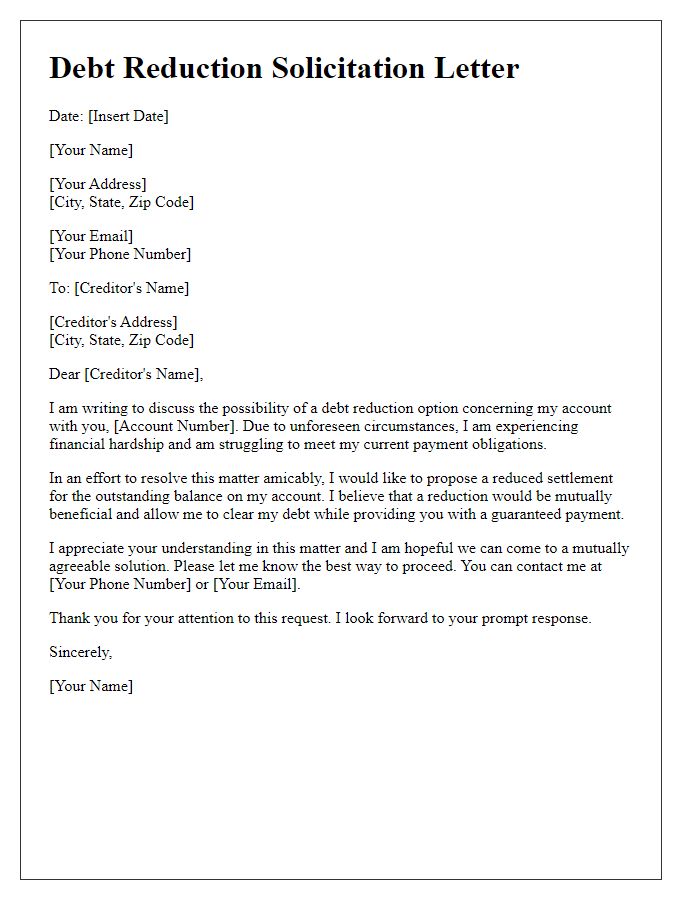

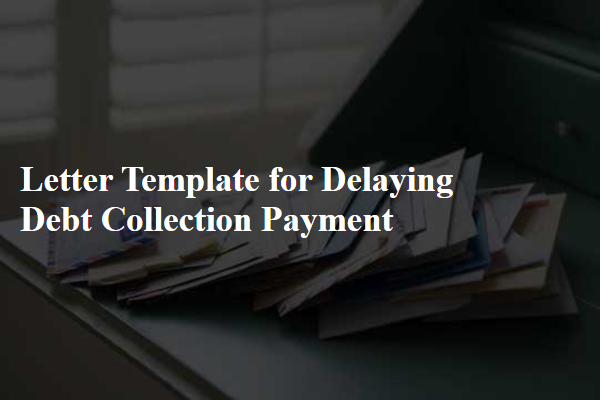
Comments